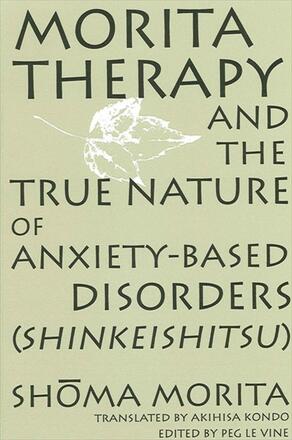
Morita Therapy and the True Nature of Anxiety-Based Disorders (Shinkeishitsu)
Alternative formats available from:
The first English translation of a seminal work in a therapeutic practice that holds increasing interest for Westerners.
Description
This book presents the progressive nature of Morita therapy across four distinct stages: an isolation rest stage, a light monotonous work stage, a labor-intensive work stage, and the social integration stage. Essentially, the experiential knowledge the clients gain by moving through the inpatient treatment becomes the therapy. Though the classical therapy was initially designed to treat anxiety-based disorders, it is presently used in Japan, China, and Australia for depression, personality disorders, eating disorders, and post-traumatic stress disorder. Morita therapy fosters akiraka ni mikiwameru-koto in the client (clear discernment), and a healthy mind/body. Throughout the book, Morita reflects on the theories of his contemporaries such as Sigmund Freud, William James, Mario Montessori, and Jean Charcot.
Shoma Morita published the original Japanese version of this translation in 1928. This English translation was developed by Akihisa Kondo, a practitioner of classical Morita therapy, Zen, and psychoanalysis. Peg LeVine is Senior Lecturer in the Department of Psychological Medicine at Monash University and is the only English-speaking person outside Japan practicing the classical four-stage Morita treatment.
Reviews
"Some of Morita's insights into the changeable nature of feelings and attention were ahead of his time. These insights fit well with some modern theories of how the dynamic brain works. " -- Henry J. Kahn, University of California-San Francisco
"This book is important in itself as a historical document as Morita therapy represents a unique form of treatment which has emerged out of Japanese culture. It presents a different perspective on mental health and impairment and thus another way of understanding human beings. " -- Mike Sayama, author of Samadhi: Self Development in Zen, Swordsmanship, and Psychotherapy